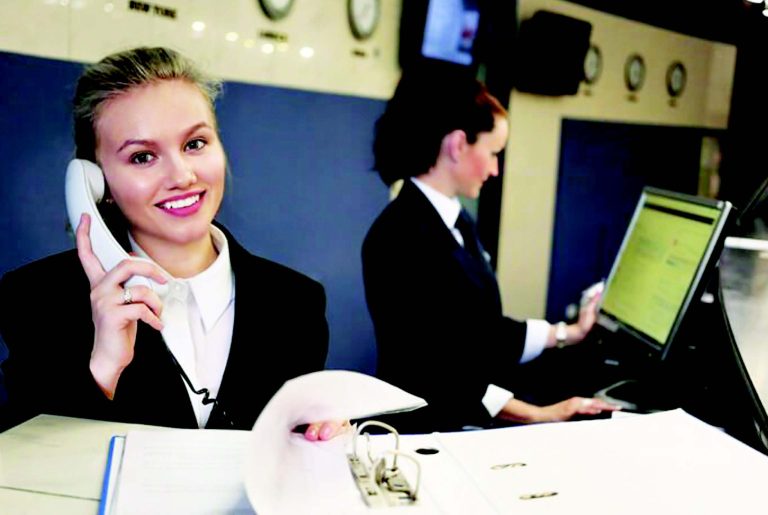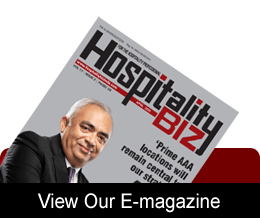
 The front office is the heart of any hotel organization, and successful front office professional needs to be comfortable with interacting with strangers and dealing with various hotel guests’ issues. To do so effectively, they need to understand and apply personality psychology, which is a branch of psychology that studies personality and individual differences. The central idea is that one can relate and work with people well if one knows it well
The front office is the heart of any hotel organization, and successful front office professional needs to be comfortable with interacting with strangers and dealing with various hotel guests’ issues. To do so effectively, they need to understand and apply personality psychology, which is a branch of psychology that studies personality and individual differences. The central idea is that one can relate and work with people well if one knows it well
Let’s start with ‘Big Five’ model of personality (by Lewis Goldberg), which is often remembered by the acronym OCEAN with their implications for front office professionals:
1) Openness to Experience: This dimension represents tendency to be imaginative, independent, and interested in variety. While dealing with these guests, front office professional should emphasise hotel’s new, novel or innovative approach, as well as leading-edge and proprietary information that gives it a competitive edge.
2) Conscientiousness: It represents the tendency to be organized, careful, and disciplined. To deal with them, front office professional should emphasize detail in reports and presentations and explain how that detail is derived from careful and authenticate information.
3) Extraversion: It reflects the tendency to be sociable, fun-loving, and affectionate. While responding to these, front office professional can emphasize the ongoing relationship the hotel organization has with client’s company.
4) Agreeableness: This is the tendency to be soft-hearted, trusting, and helpful. Front office professional while interacting with them should emphasize the powerful reputation hotel organization has in the market, along with mentioning how much he/she enjoys talking with them.
5) Neuroticism: It represents the tendency to be calm, secure, and self-satisfied. While dealing with them, front office professional should emphasize the reputation and high standards of the guest’s company and how hotel organization complements that brand and fits in with their innovative agenda or plans.

Guests are again categorised into four types (by Irina von Bentheim) depending upon the accommodation planning done by them:
1) The cautious guest: They plan their accommodation right down to the last detail weeks, and even months, in advance. Playing a tolerant partner at their side, front office professional can let them happily experience harmony.
2) The cunning guest: The cunning guest compares prices, furnishings and locations months in advance, and rings up their chosen hotel every day under a different name to ensure their hosts will still welcome them even if their demands are unfair. As these types of guests are generally in possession of the strongest of egos, front office professionals should be mentally prepared to face more confrontations and act according to the situation keeping their cool.
3) The lucky beggar: These types of guests do not do any planning, but always manage to have luck on their side and end up in a top hotel. They like others indulge more often in self-criticism, which should be kept in mind by the front office professionals while interacting with them.
4) The jinxed traveler: The jinxed traveler never plans ahead, always seems to encounter bad luck and does not have sufficient self-belief. The front office professionals dealing with them must be well organized and accustomed to taking matters into their own hands.
Bryan Eisenberg categorizes the guests’ personalities into four groups on the basis of their queries while making bookings and reservations. The characteristics and aspirations of each group should be kept in mind by the front office professionals while handling their bookings:
1) Competitive personality: This type of person is decisive and looks for the bottom line. This personality asks ‘what’ questions.
2) Humanistic personality: A person with this type of personality appreciates a hotel with friendly, helpful and polite staff. This personality asks ‘who’ questions.
3) Spontaneous personality: A person who has this personality is impulsive and appreciates a personal touch. This personality asks ‘why’ questions.
4) Methodical personality: A methodical person likes to see the hard facts and wants to see the information presented in a logical manner. This personality type asks ‘how’ questions.
Front office professionals should also be familiarised with the pricing and currency usage related behaviour of the guest as a consumer. Two personality variables seem to offer a great deal of promise in understanding consumer behavior (by Curtis Haugtvedt, Richard Petty & John Cacioppo). These personality variables are: 1) Need for cognition, and 2) Self-monitoring.
As per Need for Cognition, guests can be divided into:
a) Cognitive spenders: They are highly motivated to think about the given information and are more curious, enjoy mental activities and seek out additional stimulus information.
b) Cognitive misers: They employ less complex decision rules and are unlikely to devote much thought to any situation. They remain in the characterization stage due to their lack of motivation to assess the information thoroughly.
As per Self-Monitoring, individuals can be classified as:
a) Low self-monitors: They are especially sensitive and responsive to inner dealings, attitudes, and beliefs and behaviors reflect their feelings and attitudes without regard to situational or interpersonal consequences of those behaviors.
b) High self-monitors: They are much less sensitive to internal beliefs and values and they view their behaviours as stemming primarily from a pragmatic view of what external, situational cues define as socially appropriate action.
Front Office professionals should recognize the distinct two personality types of travelers based on their lodging habits (as per survey of Embassy Suites by Hilton):
1) Upstairs guests: They are more introverted people who spend less time in public areas and prefer private spaces such as bedrooms over more social spaces such as lobbies and lounges.
2) Downstairs guests: They are more extroverted and tend to use concierge services more often, dine out of their rooms and prefer social spaces to private areas.

Some guests are always referred as complainers (as per Amy Bradley-Hole), and to deal with such customers, front office professionals need to identify the following types of guests’ personality in order to know their wants:
1) People with ruined dreams: This type of persons may complain because they have major problems, but they often complain about minor things that may not really matter.
2) Face-savers: Face-savers complain because they think acting irate will camouflage their shortcomings.
3) Freebie-lovers: These people love bargaining.
4) Wounded warriors: They often complain because it’s the only way to regain control of their life.
5) Martyrs/passive-aggressives: This type of guest wait until they return home to tell everyone they know and the local news station about how horribly they were treated.
6) The loyal customers: They don’t really complain, instead, they provide constructive criticism.
7) The truly injured: The truly injured guests. They ask for appropriate compensation for their problems, and are never demanding.
The knowledge and understanding of various personality types of guests would guide the front office professionals to plan their strategy to deal effectively with different types of guests in all of their job functions.
(Dr Rajiv Mishra is an Assoc. Professor – Hospitality & Tourism, ITC-Welcomgroup Graduate School of Hotel Administration and Dr Kulwinder Pal is a Professor & Asst. Director, Directorate of Distance Education, Lovely Professional University, Phagwara)
The views expressed within this column are the opinion of the author, and may not necessarily be endorsed by the publication.


